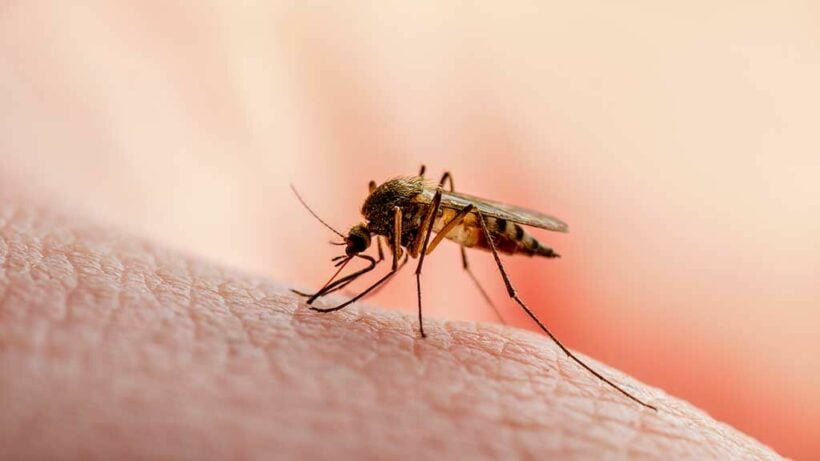Thailand wants to eradicate malaria ‘for good’

Cases of malaria in Thailand have decreased 72% in recent years, but the country’s Department of Disease Control is planning to completely eradicate the mosquito-borne disease by 2024. Today, the DDC is observing World Malaria Day 2022 under the theme “Harness innovation to reduce the malaria disease burden and save lives”. A malaria vaccine is also under evaluation and is planned to undergo clinical trials in Thailand in the future.
Thailand has made impressive progress in controlling and preventing cases of malaria through the ‘National Malaria Elimination Strategy 2017-2026’ initiative. From 2017 – 2021, cases of malaria in the kingdom decreased by 72%. Since the beginning of this year, 731 cases of malaria have been recorded in Thailand. However, the Thai government wants to completely eradicate cases of malaria in the next 2 years.
Cases of malaria in Thailand usually occur in mountainous or forested areas, especially along the Thai – Myanmar and Thai – Cambodian borders. There is very little risk of transmission in urban areas such as Bangkok, Chiang Mai, Pattaya, Phuket, etc. Only certain species of mosquitoes can spread malaria, which is spread in Thailand through female Anopheles mosquito bites. Malaria is caused by protozoa and can be fatal.
Symptoms of malaria include fever, chills, headache, muscle pain, loss of appetite, nausea, vomiting, diarrhea and yellowing of the skin.
If you travel to a rural area where there is a risk of malaria, the best prevention is to prevent mosquito bites by using mosquito repellent and sleeping inside a mosquito net. The drug Chemoprophylaxis, which can cause unpleasant side effects, is not recommended in Thailand where malaria is multi-drug resistant.
HERE is an article about avoiding another mosquito-borne disease, Dengue, with some clues about preventing bites.
People who are repeatedly exposed to malaria can acquire immunity to the parasitic disease, opening up the opportunity for a malaria vaccine to be developed. However, the complexity of the malaria parasite has made developing a vaccine a challenge.
Mosquirix is the world’s first WHO-approved vaccine against malaria caused by the plasmodium falciparum parasite. The vaccine is based on a protein expressed on the surface of the sporozoite, called the circumsporozoite protein. The vaccine is under evaluation in Ghana, Kenya and Malawi, with ongoing studies suggesting the vaccine is reducing deadly malaria cases by at least 30%.
Scientists in India have completed the first-ever Phase 1 clinical trials using the vaccine, which were considered to be successful. A Phase 2a trial is being planned at Oxford University and another is planned to take place in Thailand.
Last July, BioNTech, manufacturer of the Pfizer-BioNTech Covid-19 vaccine, announced it wants to develop a malaria vaccine using mRNA technology and aims to start clinical trials by the end of this year.
SOURCE: NNT
Latest Thailand News
Follow The Thaiger on Google News:


























